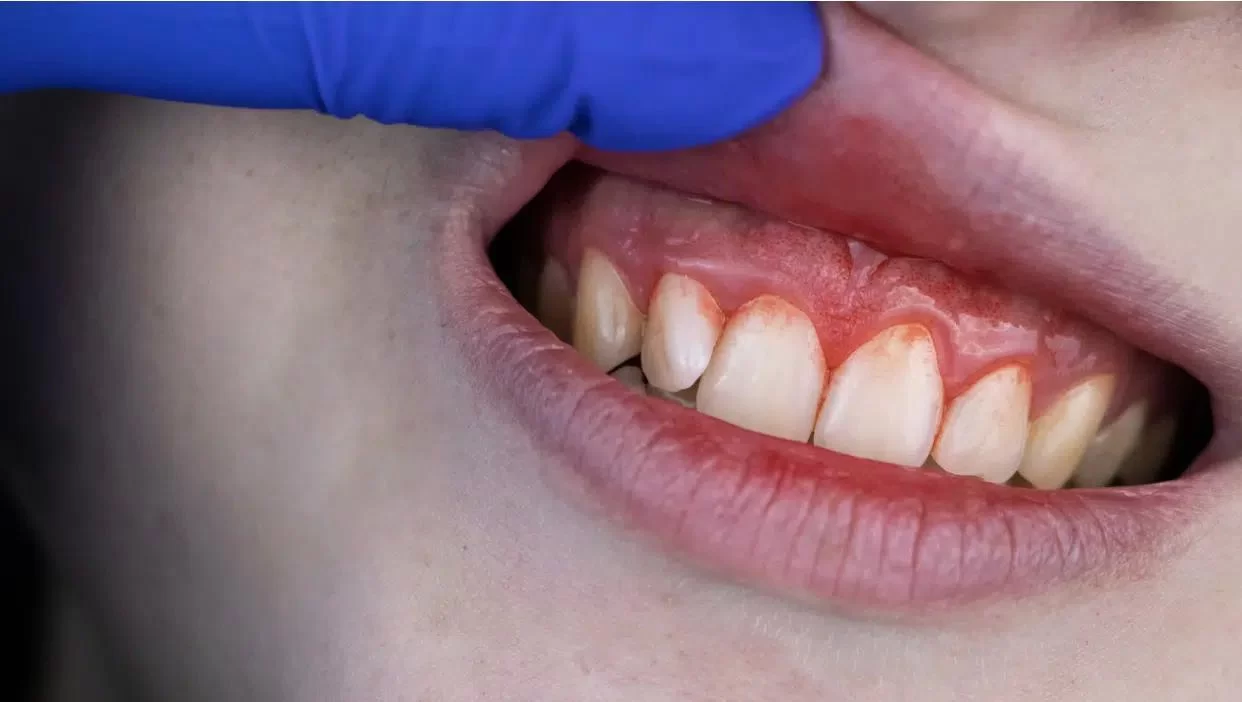
How to Treat an Inflamed Gum Line: Effective Remedies and Tips
- 1. Understanding Gum Inflammation
- 2. Common Causes of an Inflamed Gum Line
- 3. Home Remedies for Inflamed Gums
- 4. When to Seek Professional Care
- 5. Tips for Preventing Future Gum Inflammation
- 6. Final Thoughts and Where to Buy Effective Products
1. Understanding Gum Inflammation
Gum inflammation, or gingivitis, is a condition that affects the tissues surrounding your teeth, causing them to become red, swollen, and often painful. An inflamed gum line is one of the earliest signs of gum disease and should be addressed promptly to avoid progression to more serious conditions like periodontitis, which can lead to tooth loss.
Inflammation occurs when bacteria from plaque build-up irritate the gums, leading to swelling and bleeding, especially when brushing or flossing. While the condition can be uncomfortable, it is treatable and often reversible with the right care.
2. Common Causes of an Inflamed Gum Line
There are several reasons why you might experience an inflamed gum line, including:
- Poor Oral Hygiene: Inadequate brushing or flossing allows plaque and tartar to build up, irritating the gums.
- Smoking: Tobacco use can impair gum health and hinder healing.
- Hormonal Changes: Pregnancy, menstruation, and menopause can make gums more susceptible to inflammation.
- Certain Medications: Some medications can affect your oral health, leading to gum swelling and tenderness.
- Underlying Health Conditions: Diseases like diabetes or autoimmune disorders can increase the risk of gum disease.
Understanding the root cause of your gum inflammation is key to determining the best treatment plan for your condition.
3. Home Remedies for Inflamed Gums
If you're dealing with a swollen gum line, there are several home remedies that can help reduce inflammation and promote healing:
- Saltwater Rinse: A warm saltwater rinse can help soothe inflamed gums and reduce swelling. Simply mix a teaspoon of salt in warm water and rinse your mouth for 30 seconds.
- Antiseptic Mouthwash: Using a mouthwash that contains antibacterial ingredients like chlorhexidine or essential oils can help reduce bacteria and prevent further irritation.
- Cold Compress: Applying a cold compress to the outside of your cheek can help reduce swelling and numb any discomfort caused by inflamed gums.
- Hydrogen Peroxide: A diluted hydrogen peroxide rinse can help clean your gums and prevent infection. Mix one part hydrogen peroxide with one part water and use it to rinse your mouth.
- Gentle Brushing: Use a soft-bristled toothbrush and gentle brushing techniques to avoid further irritating your gums. Make sure to brush twice a day to keep plaque at bay.
While these remedies can offer relief, it is important to combine them with consistent oral hygiene habits for the best results.
4. When to Seek Professional Care
While many cases of gum inflammation can be treated at home, it’s important to know when professional care is needed. If you notice any of the following symptoms, it may be time to visit a dentist:
- Persistent swelling or redness of the gums that doesn’t improve with home care.
- Severe gum pain or bleeding, especially when brushing or eating.
- Receding gums or loose teeth.
- Persistent bad breath or a bad taste in your mouth.
A dentist can assess the severity of your condition, recommend appropriate treatments, and help prevent the issue from worsening.
5. Tips for Preventing Future Gum Inflammation
Prevention is key when it comes to gum health. Here are a few tips to help you maintain a healthy gum line and prevent inflammation:
- Brush and Floss Daily: Brush at least twice a day and floss once a day to remove plaque and food particles from between your teeth and gums.
- Regular Dental Checkups: Visit your dentist every six months for professional cleanings and to detect early signs of gum disease.
- Quit Smoking: If you smoke, quitting can significantly improve your gum health.
- Eat a Healthy Diet: A balanced diet rich in vitamins and minerals, particularly vitamin C, can help support healthy gums.
By following these simple habits, you can keep your gums healthy and avoid the discomfort of inflammation in the future.
6. Final Thoughts and Where to Buy Effective Products
Gum inflammation may start as a minor issue, but if left untreated, it can lead to more serious oral health problems. Fortunately, there are several ways to manage and treat an inflamed gum line at home with the right products and techniques.
If you're looking for effective products to treat inflamed gums, we recommend considering mouthwashes with antibacterial properties, soft-bristled toothbrushes, and gentle fluoride toothpaste. At Dentistry Toothtruth, you can find trusted recommendations for the best oral care products tailored to your needs.
Don’t wait until your gums are in serious pain—take action now and start incorporating these tips into your daily routine. For more information and to explore the latest products, visit Dentistry Toothtruth.







 Encino Cosmetic Dentistry - Roberta Cerveny, DDS4.0 (36 review)
Encino Cosmetic Dentistry - Roberta Cerveny, DDS4.0 (36 review) Hassan Ismail5.0 (1 review)
Hassan Ismail5.0 (1 review) Professional Dental Center4.0 (113 review)
Professional Dental Center4.0 (113 review) Beam Dental5.0 (13 review)
Beam Dental5.0 (13 review) Braces By Dr. Ruth4.0 (1052 review)
Braces By Dr. Ruth4.0 (1052 review) Oswego Commons Family Dental4.0 (972 review)
Oswego Commons Family Dental4.0 (972 review) The Importance of Oral Health Education During Pregnancy for a Healthy Pregnancy
The Importance of Oral Health Education During Pregnancy for a Healthy Pregnancy Best Tips for Brushing Your Teeth Properly for Healthy Gums: Essential Techniques for Oral Health
Best Tips for Brushing Your Teeth Properly for Healthy Gums: Essential Techniques for Oral Health Why Skipping Dental Checkups Can Lead to Bigger Oral Health Problems
Why Skipping Dental Checkups Can Lead to Bigger Oral Health Problems Advantages of Porcelain Dental Restorations
Advantages of Porcelain Dental Restorations How Can Diabetes Cause Tooth and Gum Problems? Preventing and Managing Oral Health Issues
How Can Diabetes Cause Tooth and Gum Problems? Preventing and Managing Oral Health Issues Healthy Habits for Promoting Good Oral Health and Hygiene: Tips for a Healthy Smile
Healthy Habits for Promoting Good Oral Health and Hygiene: Tips for a Healthy Smile